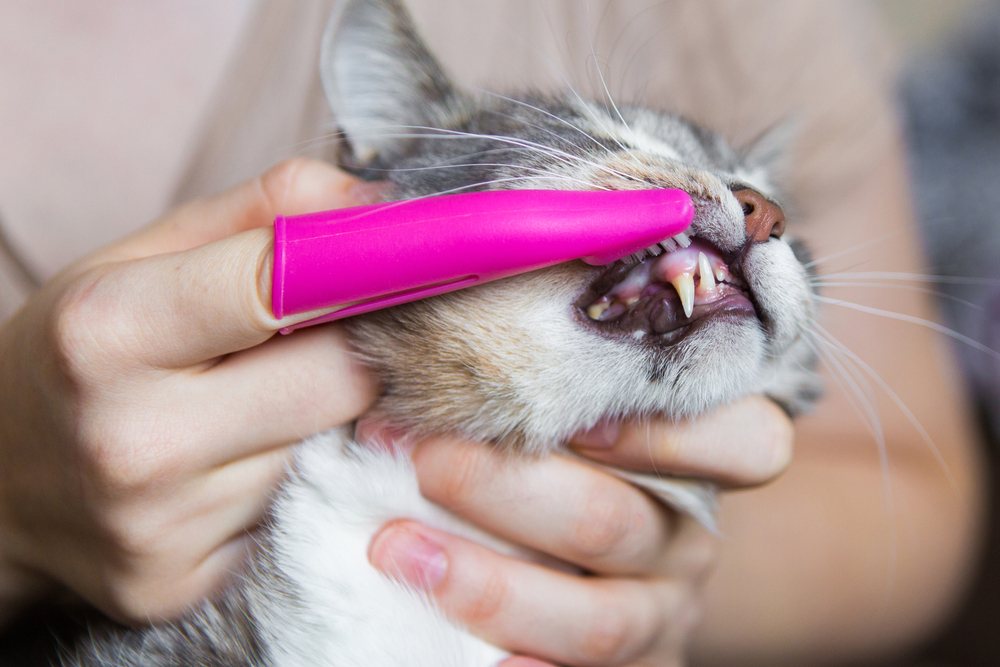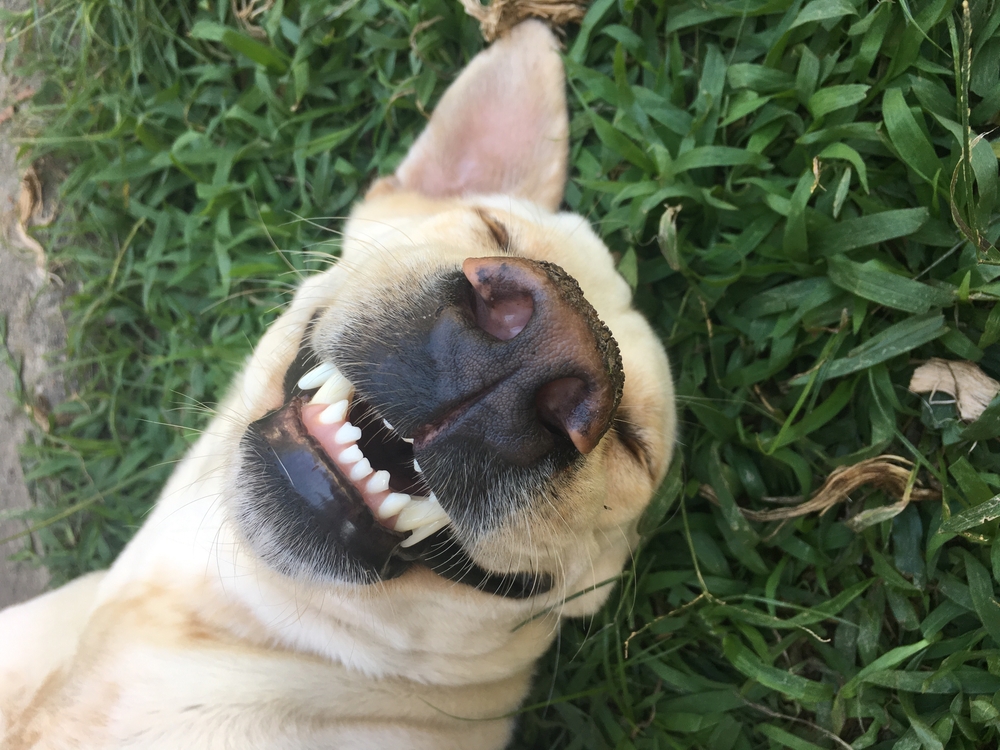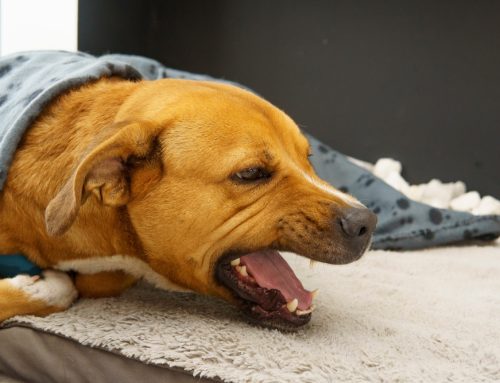Oral health is this month’s topic, because February is National Pet Dental Health Month. Our veterinarians at Companion Veterinary Clinic are shining the spotlight on this critical area of your pet’s health because, unfortunately, most dogs and cats over 3 years of age have dental disease. And, dental disease in your pet is much more than ugly teeth or smelly breath—disease can cause serious pain and a shortened lifespan.
To keep your four-legged friend in excellent general health, you must attend to their dental health. Pet dental health is extremely important, not only to care for your pet’s mouth and teeth by preventing plaque and tartar caused by buildup of bacteria that can lead to gingivitis (i.e., gum inflammation and infection), pain, tooth damage, and tooth loss, but also because the bacteria can enter the bloodstream and damage organs, including the heart, liver, and kidneys. Let’s explore dental disease in more detail.
Dental disease signs and stages
Periodontitis (i.e., dental disease) affects cats and dogs. The disease occurs in four stages:
- Stage 1 — Plaque buildup results in gingivitis, which shows as red, inflamed gums. Pets also will often have unpleasant breath.
- Stage 2: — The surrounding tissues of the teeth are damaged, up to 25% of the bone structure is lost, the gums may occasionally bleed, and the pet may feel mild to moderate pain.
- Stage 3: — The disease at this stage has significantly progressed, with a resulting 25% to 50% loss of tooth support.
- Stage 4: — This is the advanced periodontal disease stage, when more than 50% tooth structure is lost, teeth are damaged and require extraction, the gums are severely inflamed and bleeding, and the pet is in serious pain.
Few disease signs are visible at stage 1, and the disease often goes unnoticed and untreated and advances through stages 2 and 3. By stage 4, the bacteria have accumulated, entered the bloodstream, and compromised major body organs, including the heart, liver, and kidneys.
Promoting better dental health for your pet
Your pet may never have perfect teeth, but you can prioritize good hygiene and disease prevention and help ensure good dental health. The first step always is a wellness exam by our Companion Veterinary Clinic veterinary team so we are alerted to any changes occurring to your pet’s teeth, or their health in general.
Veterinary dental care for your pet
Depending on your pet’s oral health, we may recommend that we clean your pet’s teeth while your pet is anesthetized. This is no cause for alarm. Most pets need their teeth cleaned professionally to eliminate the plaque that results from bacteria in the mouth and hardens into tartar, which damages the teeth. Digital dental X-rays, which have made a big impact on veterinary dentistry, are also necessary, because they allow us to see below the gum line and identify bone loss or structural damage to the supportive tissues.
At-home dental care for your pet

Veterinary examinations are critical and should be performed at least annually. In the meantime, you should care for your pet’s teeth at home by:
- Brushing your pet’s teeth daily — Daily toothbrushing should ideally start when your pet is young, although it’s never too late to start, and your older pet will benefit, too. Use pet-safe toothbrushes and toothpaste—never your own toothpaste, which contains ingredients harmful to pets.
- Moving slowly — If your pet resists, never fear. Start slowly, frequently touching the surface of the teeth with your finger or a rubber finger cap that you can buy in a pet store’s dental supply section. Then, focusing on the front teeth only, brush in an up and down, side to side motion. Once your pet is comfortable, move to the back, interior, and sides of the teeth and mouth. Don’t forget to reward your pet with treats.
- Feeding a quality prescription diet — Good nutrition goes hand in hand with dental health. Specialty diets formulated to maintain healthy teeth and gums are available. Your veterinarian can recommend the best diet for your pet.
- Offering dental chews and chew toys — Chewing is a natural form of toothbrushing—but not a replacement. Look for the Veterinary Oral Health Council (VOHC) seal of approval on any dental chews and treats, which means that the organization has certified that the product is proven effective. veterinary professionals. Chew toys prohibit plaque buildup, but you must ensure they are sturdy and appropriately sized for your pet’s mouth. Avoid bones, which can splinter and injure your pet.
The best way to manage your pet’s dental health is through professional dental examinations and cleanings, but this doesn’t take the place of at-home care. Dental wellness is a combined effort. Companion Veterinary Clinic’s team wants to ensure your pet’s health and happiness, so contact us to schedule their wellness and dental exams. After all, February—National Pet Dental Health Month—is the perfect time.







Leave A Comment